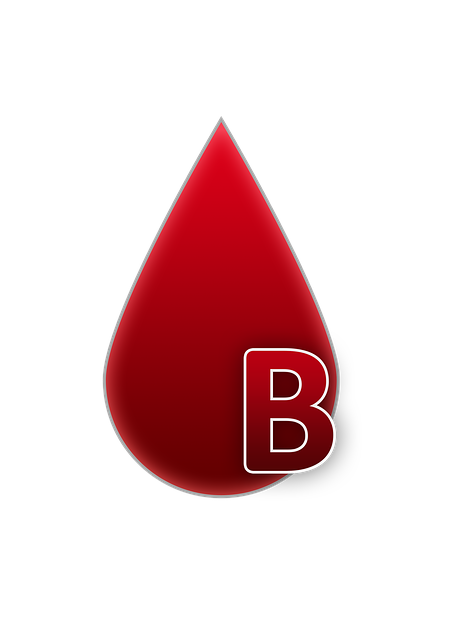Diabetes blood tests are essential tools for managing and diagnosing metabolic conditions. By checking blood glucose levels, individuals can take proactive measures to maintain health. Early detection through regular screenings prevents complications and allows timely interventions. Key blood tests include Fasting Plasma Glucose (FPG), Oral Glucose Tolerance Test (OGTT), and Random Plasma Glucose checks. Preparing for a screening involves fasting and informing the doctor about medications or supplements. Interpreting test results with a healthcare professional is crucial for personalized recommendations to manage blood sugar levels effectively.
“Diabetes is a prevalent, manageable condition that requires proactive monitoring. Understanding diabetes screening is crucial for early detection, enabling prompt management and prevention of complications. This comprehensive guide delves into the intricacies of diabetes blood tests, their types, preparation, interpretation, and post-screening care. By familiarizing yourself with these steps, you can take control of your health, starting with a simple yet vital diabetes blood test.”
- Understanding Diabetes: A Comprehensive Overview
- The Importance of Early Detection Through Blood Tests
- Types of Diabetes Blood Tests and Their Functions
- Preparing for Your Diabetes Screening Appointment
- Interpreting Results: What Do the Numbers Mean?
- Post-Screening Care and Next Steps with a Medical Professional
Understanding Diabetes: A Comprehensive Overview
The Importance of Early Detection Through Blood Tests
Early detection is a cornerstone in managing diabetes effectively. Regular diabetes blood tests play a vital role in identifying the condition at its earliest stages, allowing for prompt intervention and better control. By analysing a small sample of your blood, these tests can reveal crucial information about your glucose levels, which is essential for preventing complications.
Through diabetes blood tests, healthcare professionals can diagnose prediabetes, where blood sugar levels are higher than normal but not yet high enough to be called diabetes. This early detection provides an opportunity for individuals to make lifestyle changes, such as adopting a healthier diet and increasing physical activity, to prevent or delay the onset of type 2 diabetes. Timely diagnosis and management can significantly reduce the risk of developing severe health issues associated with untreated diabetes, like heart disease, nerve damage, and kidney problems.
Types of Diabetes Blood Tests and Their Functions
There are several types of diabetes blood tests that play a crucial role in diagnosing and managing the condition. One of the most common is the fasting plasma glucose (FPG) test, which measures blood sugar levels after an overnight fast. Normal FPG levels should be below 100 mg/dL, while readings between 100-125 mg/dL indicate prediabetes, and above 126 mg/dL suggests diabetes.
Another vital test is the oral glucose tolerance test (OGTT), where blood sugar is checked after a person fasts and then again two hours after drinking a sugary solution. This test helps identify how well the body processes glucose. Additionally, the random plasma glucose test, taken at any time of day regardless of eating, can indicate acute hyperglycemia or diabetes if levels are persistently high. These tests work in tandem to provide a comprehensive understanding of an individual’s metabolic health and guide appropriate medical intervention.
Preparing for Your Diabetes Screening Appointment
Preparing for your diabetes screening appointment is a crucial step in understanding your health. Before your visit, inform your doctor about any medications or supplements you’re taking, as this can affect test results. Additionally, fast for at least 8 hours before the appointment, especially if you’re scheduled for a fasting blood sugar test, which is a common diabetes screening method. This ensures accurate readings of your glucose levels.
On the day of your appointment, bring along any relevant medical records or symptoms you’ve been experiencing. It’s also beneficial to write down questions you’d like to discuss with the expert medical consultant. Being well-prepared allows for an efficient consultation, enabling open dialogue about diabetes risk factors and potential prevention strategies.
Interpreting Results: What Do the Numbers Mean?
After undergoing a diabetes blood test, understanding your results is crucial for managing your health effectively. The numbers provided give insights into your glucose levels and can indicate whether you’re at risk of prediabetes or diabetes. A normal fasting blood sugar level typically ranges from 70 to 99 mg/dL (milligrams per deciliter). Levels between 100 and 125 mg/dL suggest prediabetes, indicating a higher risk of developing type 2 diabetes. If your result falls above 126 mg/dL on two or more tests, it could mean you have diabetes.
Interpreting these results is the first step towards taking control of your health. Your doctor can help explain what your numbers mean and guide you on the next steps, which may include lifestyle changes or further testing. Regular monitoring and consultation are key to managing blood sugar levels and preventing potential complications associated with diabetes.
Post-Screening Care and Next Steps with a Medical Professional
After undergoing a diabetes blood test, proper post-screening care and guidance from a medical professional are essential steps in managing potential risks or confirming a diagnosis. The next phase involves a detailed conversation with your healthcare provider who will interpret the results and offer personalized recommendations. During this consultation, patients can expect to be educated about their test outcomes, including any abnormal readings and their significance.
The expert will discuss various factors influencing diabetes risk, provide insights on lifestyle modifications, and recommend appropriate follow-up tests or treatments if needed. This collaborative approach ensures individuals receive tailored advice, fostering proactive health management. Additionally, medical professionals can address any concerns or questions, offering peace of mind and empowering patients to take charge of their well-being.
